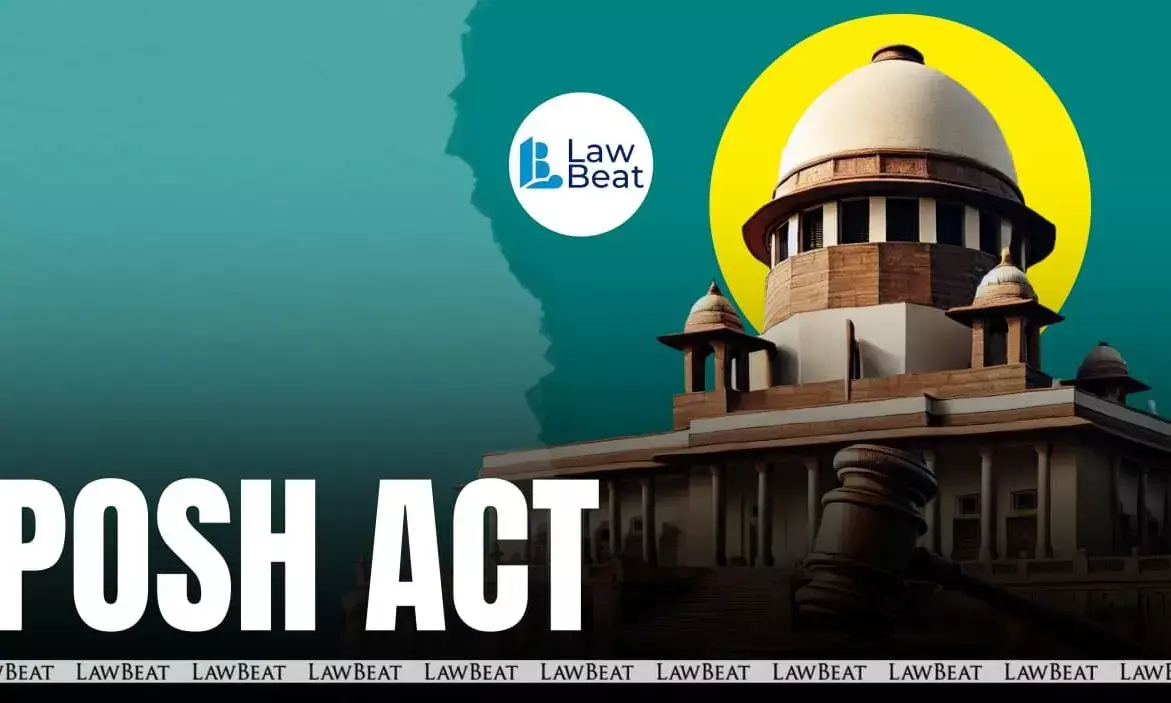Can POSH Act Protect Women Advocates? Supreme Court to Decide

Supreme Court holds Internal Committee (IC) at aggrieved woman’s workplace can inquire into complaint against employee of different department
The Supreme Court on Thursday issued notice on a petition filed by the Supreme Court Women Lawyers Association (SCWLA) challenging the Bombay High Court judgment which held that the Protection of Women from Sexual Harassment at Workplace (Prevention, Prohibition and Redressal) Act, 2013 (POSH Act) does not apply to complaints of sexual harassment lodged by women advocates before Bar Councils.
The Bench of Justice BV Nagarathna and Justice R Mahadevan sought responses from the Bar Council of India and other respondents after hearing preliminary submissions.
During the hearing, Senior Advocate Mahalakshmi Pavani appeared for the SCWLA.
Justice Nagarathna remarked on the breadth of complaints often received in the court’s own Gender Sensitisation and Internal Complaints Committee (GSICC). She noted that the committee regularly receives complaints unrelated to sexual harassment, including allegations that cases are not being listed or heard, yet each complaint must still be processed and recorded.
The petition filed through AoR Kalita Sneha challenges the Bombay High Court’s July 7, 2025 ruling in UNS Women Legal Association v. Bar Council of India, PIL No. 16 of 2017, where the court held that the POSH Act applies only within a traditional employer-employee relationship. The High Court concluded that since advocates are independent professionals and not employees of the Bar Council, the provisions of the POSH Act could not be invoked and that grievances of sexual misconduct must instead be addressed under Section 35 of the Advocates Act, 1961.
SCWLA, a registered body representing women lawyers, has approached the Supreme Court under Article 136, arguing that the Bombay High Court judgment creates a serious gap in legal protection for women practicing law. The petition asserts that excluding women advocates from the ambit of the POSH Act results in arbitrary, irrational, and discriminatory treatment, especially when the law was enacted to ensure safe workplaces for all women irrespective of sector or employment structure.
In its plea, SCWLA argues that the High Court’s interpretation incorrectly treats the Bar Council as having no statutory responsibility to address sexual harassment through the mechanisms mandated under POSH. According to the petition, the judgment takes an unduly narrow view, confining POSH protections only to conventional workplaces and ignoring the reality that the legal profession constitutes a workplace for thousands of women advocates who routinely appear before courts, counsel clients, and interact with peers, seniors, and judicial institutions.
The petition further states that the reasoning adopted by the High Court fundamentally misunderstands the nature of Section 35 of the Advocates Act, which deals with professional misconduct through disciplinary proceedings. SCWLA submits that Section 35 cannot be equated with the specialised redressal structure created under the POSH Act, which is tailored to address workplace harassment with defined procedures, timelines, gender-sensitive safeguards, conciliation provisions, and dedicated complaint committees.
It also highlights that the Bombay High Court’s decision narrows down the expansive interpretation of workplace protection principles evolved over years through landmark Supreme Court judgments starting with Vishaka v. State of Rajasthan (1997).
The petition notes that the Supreme Court in cases such as Aurefiano Fernandes v. State of Goa (2024) had expressly directed professional bodies including the Bar Council of India and State Bar Councils to set up Internal Complaints Committees in full compliance with POSH guidelines. Similarly, in Medha Kotwal Lele v. Union of India, the Supreme Court had directed Bar Councils to ensure that Vishaka Guidelines are followed by bar associations and advocates.
SCWLA argues that the Bombay High Court’s ruling undermines these judicial directives and dilutes the purpose of the POSH Act, which was enacted to create a harassment-free environment for women irrespective of workplace structure. The petition also points out that India is a signatory to several international conventions such as CEDAW, which obligate the State to ensure equal and safe opportunities for women in all professions.
Given the nationwide repercussions of the ruling, SCWLA has requested the Supreme Court to intervene and restore the applicability of the POSH Act to women in the legal profession. The matter will be heard next after the respondents file their replies.
Case Title: Supreme Court Women Lawyers Association v. BCI
Hearing Date: November 21, 2025
Bench: Justices BV Nagarathna and R Mahadevan
